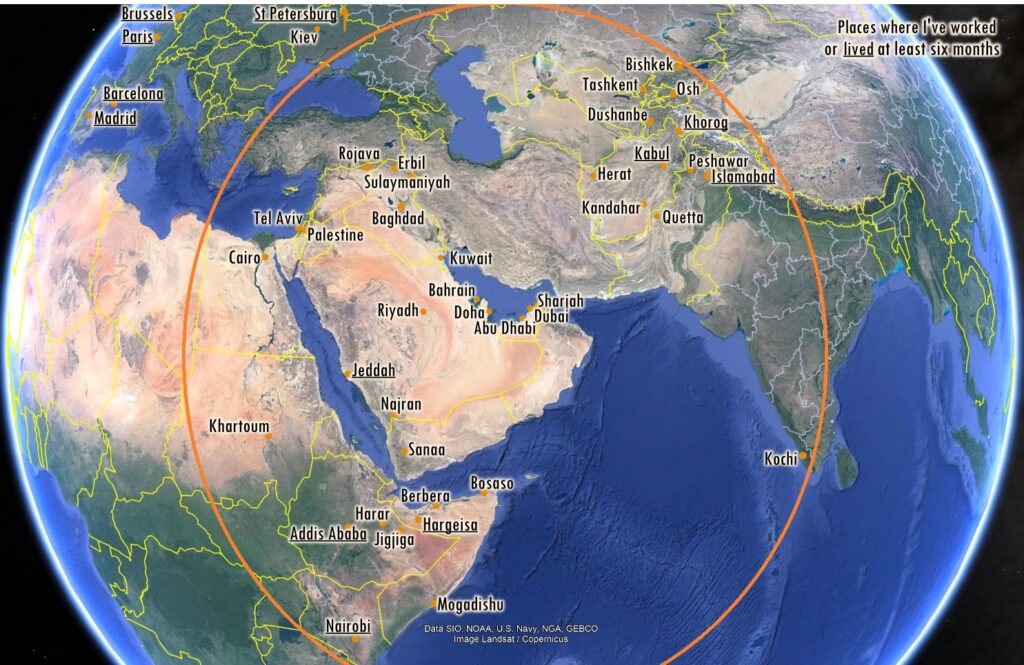
A box of Pakistani sweets I bought in Kandahar in April 2002, showing how popular Osama Ben Laden was at that time
Zie hier voor Nederlands (okt 2018)
This is the personal webpage of Robert Kluijver (born in Cyprus, 1968). I use it to publish blogs, articles that have appeared in the press (with link) or not, and reviews. In the top menu are links to other sites I have made and publications.
I studied international relations in Amsterdam and Paris (PhD obtained in January 2023). I worked and undertook academic research in Central Asia (1997-2000), Afghanistan (2000-2007), the Middle East (2007-2015) and the Horn of Africa (2015 to now). I worked for the United Nations, the Open Society Institute, NGOs (MSF and INSO), donor organizations and a variety of other organizations (EU, World Bank, research institutes). I currently live in Brussels. I specialize in research and analysis of conflict and post-conflict situations with a focus on artistic and cultural development.
In the field of the arts I produced the first Pavilion of Afghanistan at the Venice Biennale (2005), and curated contemporary art exhibitions in the Netherlands, Paris, Berlin, Kabul, the UAE, Saudi Arabia and India.
From 2010 to 2016 I taught the courses ‘Contemporary Art and Geopolitics in the Arab World’ and ‘Lessons (not) Learnt in Afghanistan’ at the Paris School of International Affairs (Sciences Po master program). From September 2016 to October 2022 I worked on my PhD ‘The State in Somalia: Between Self-Governance and International Order’. Since my successful defense I am continuing my academic research, publishing and lecturing activities, associated with the Paris-based Center for International Studies (CERI) and am looking for a stable university position.
Simultaneously I work as a consultant for international organizations; recently I have worked in Sudan and Somalia as a consultant on cultural development, assisting donors in supporting the creative sector, without creating imbalances or dependency.


